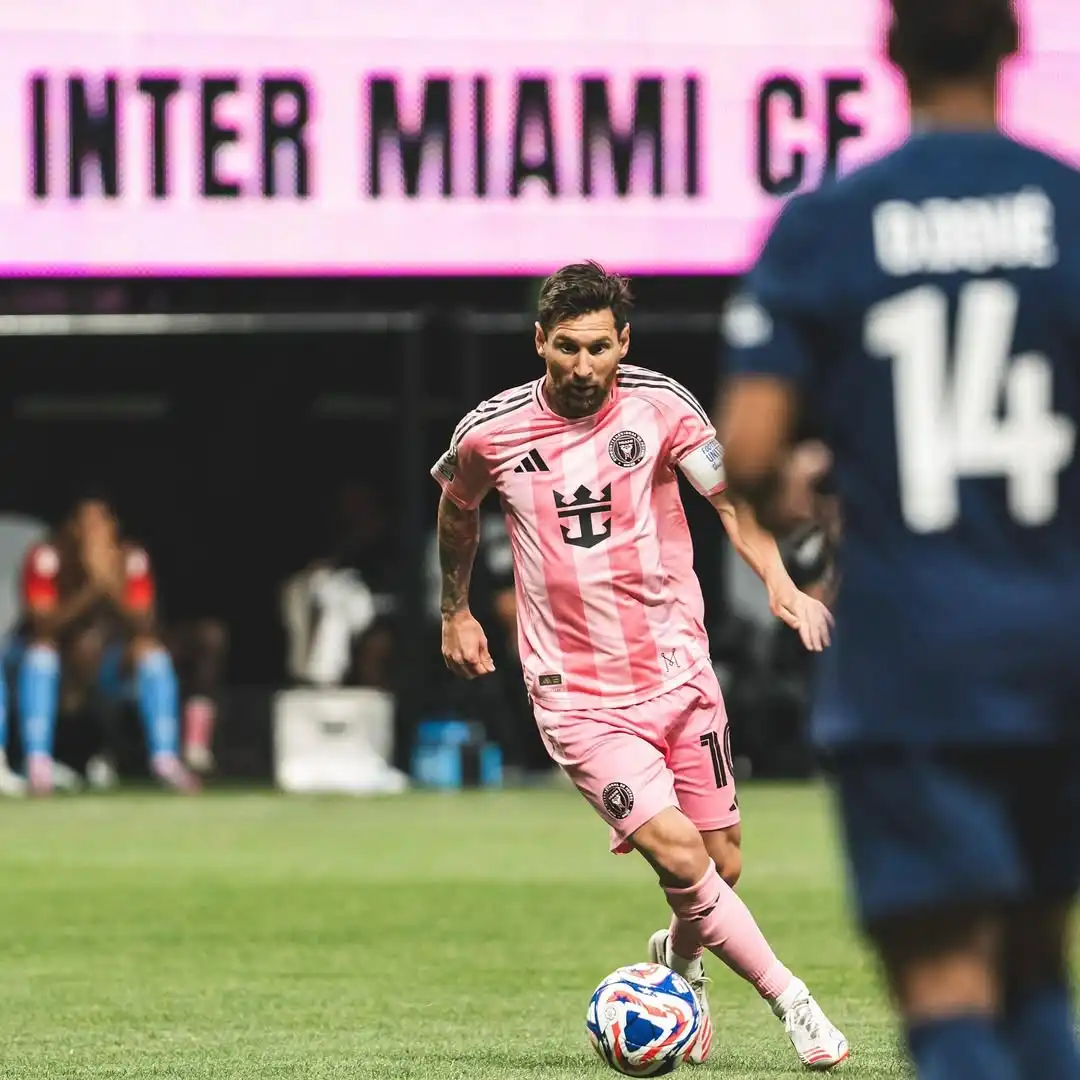A True Surprise: Why Lionel Messi's Move from Barcelona to PSG Changed Football History
Muhe - Monday, 28 July 2025 | 06:00 PM (WIB)


The Parisian Dream Team Takes Shape
Enter Paris Saint-Germain, the Qatari-backed behemoth with an insatiable appetite for the Champions League trophy and a seemingly endless budget. For them, Messi wasn’t just a player; he was the final jewel in an already star-studded crown, a marketing dream, and, they hoped, the missing piece for European glory. Imagine the scenes: thousands of fans thronging the streets of Paris, chanting his name, desperate for a glimpse of their new Messiah. The hype was stratospheric. Suddenly, PSG wasn't just a rich club; they were the epicenter of the footballing universe, boasting a front three of Messi, Neymar, and Kylian Mbappé – a trio so absurdly talented it felt like something conjured from a FIFA video game. The jerseys sold like hotcakes, social media engagement exploded, and the brand value of PSG shot through the roof. Every match they played became a global event, a chance to witness a dream team in action, or at least, the idea of one.But beyond the glitz and the glamour, Messi’s move had profound ripple effects that reshaped the very fabric of professional football. Firstly, it laid bare the brutal realities of modern football finance. If a club as historically significant and commercially successful as Barcelona could stumble so spectacularly that it had to let go of its greatest ever player, then no club, no matter how grand, was truly immune to financial mismanagement and the strictures of Financial Fair Play regulations. It was a stark reminder that even the most sentimental bonds are secondary to balance sheets in today's game. This wasn’t just a transfer; it was a giant, flashing neon sign pointing to the power shift towards state-backed entities that could, seemingly, weather any financial storm.A Global Game Changer
Secondly, it fundamentally altered player power dynamics and the very notion of loyalty. For decades, the concept of a "one-club man" like Paolo Maldini, Francesco Totti, or Ryan Giggs, was romanticized, seen as the ultimate symbol of devotion. Messi was the last true bastion of that era. His departure shattered that illusion into a million pieces. It sent a clear message: in the cutthroat world of elite football, even a legend can be deemed expendable. This move inadvertently opened the door for more high-profile shifts, normalizing the idea that even players who seem eternally linked to one badge might, against all expectations, find themselves in new colors. It also highlighted the immense leverage top players now wield, even if, in Messi's case, it was largely due to his club's failings rather than his own desire to leave.Moreover, the commercial and global impact was astronomical. PSG, a club that, for many years, struggled to break into the truly elite tier of European giants in terms of global fan base, instantly became a household name even in regions where football wasn't traditionally king. Merchandising, sponsorships, and viewership numbers went through the roof. It showcased the immense, unparalleled marketability of a global icon like Messi. His mere presence elevated an entire league (Ligue 1) onto a bigger stage, drawing eyeballs that might otherwise have never bothered. It was a masterclass in brand building, albeit one fueled by a painful parting of ways for another institution.The Aftermath and Lingering Legacy
Of course, the sporting outcomes for PSG weren’t quite the fairytale many hoped for. While they continued to dominate domestically, the elusive Champions League trophy remained just out of reach during Messi's tenure, leading to an interesting debate: was the grand experiment truly a success? For Messi himself, his time in Paris was a mixed bag, experiencing the frustration of fan jeers despite his incredible individual statistics. Yet, his eventual move to Inter Miami in Major League Soccer – another truly unprecedented leap for a player of his caliber at that stage of his career – further underscored the paradigm shift. If Messi can leave Barcelona, he can play anywhere, and still command immense global attention. It reinforced the idea that superstar players now operate as global brands in themselves, transcending club loyalties.Ultimately, Lionel Messi’s transfer from Barcelona to PSG in 2021 wasn't just a transfer. It was a watershed moment, a genuine surprise that rewrote the rulebook. It exposed the vulnerabilities of even the most storied clubs, affirmed the rising power of state-backed entities, shattered romantic notions of loyalty, and underscored the ever-growing commercialization of the sport. It forced everyone – fans, clubs, and players alike – to recalibrate their understanding of football's immutable laws. It was a true surprise, an unexpected twist in the tale that forever changed how we perceive, understand, and perhaps even love, the beautiful game.
Liverpool vs Arsenal Prediction: Week 3 of the 2025/2026 Premier League
14 days ago

Rayo Vallecano vs. Barcelona Prediction: Week 3 of La Liga 2025/2026
14 days ago

Messi's Last Dance? The GOAT Hints at a Potential World Cup Farewell in 2026
15 days ago

Real Madrid vs Mallorca Prediction: Los Blancos Aim for Third Consecutive Win
15 days ago

West London Derby: Chelsea vs. Fulham Prediction, Week 3 Premier League Match
15 days ago

Manchester United vs Burnley Prediction: Tough Test at Old Trafford
15 days ago

The Roar of History: Why Almaty Ortalık Stadium Isn't Just a Venue, It's Kazakhstan's Heartbeat
15 days ago

Wayne Rooney’s Stark Warning: Can Manchester United Still Attract Elite Managers?
15 days ago

The End of the Road: Ole Gunnar Solskjaer's Turkish Adventure Concludes Abruptly at Besiktas
16 days ago

Argentina vs. Venezuela: Lionel Messi's Final Moments in Home?
16 days ago
